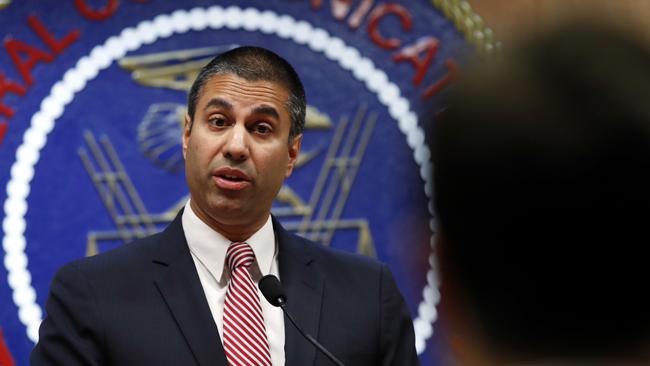Net neutrality and what it means for Australia
Explainer: what is net neutrality and what could the US FCC’s decision mean for Australian internet users?

Net neutrality means that internet service providers and telcos have to treat internet traffic that they manage as equal. They can charge you based on the gigabytes you use and the connection speed, but they cannot charge you differently if, for example, most of the time you are using your internet service to watch Netflix, or some service provided by a rival to that company.
Traditionally media companies and large tech companies such as Facebook and Google have been ardent supporters of net neutrality, while telcos in the US who want to have more control of the traffic on their networks have been opponents.
The US Federal Communications Commission decision to allow providers to discriminate different types of traffic, opens a Pandora’s box. They could choose to block certain internet traffic and access to certain websites or charge premium rates to view it.
They could achieve this by providing different internet access packages with different features. For example, if you wanted to watch Netflix using your ISP, you might pay your ISP an extra $10 per month for the privilege, as well as pay Netflix for an account. Conversely, if that ISP is allied with, say Disney or Foxtel, you might get that access for less.
This FCC decision is highly political and goes back to US President Donald Trump appointing republican Ajit Pai to the top job at the FCC in January. Pai was the FCC’s republican commissioner and an opponent of net neutrality, an Obama legacy. Earlier in his career, Pai worked as a general counsel at Verizon Communications, one of the US telcos set to benefit from the change.
While it’s not immediately applicable to Australia, there is likely to be longer-term fallout, even though we don’t observe the concept of net neutrality strictly here anyway.
But we could see more strident differences in how internet traffic is charged here. Telstra boss Andrew Penn has pointed out how much bandwidth it takes in Australia, and seems keen to disrupt it.
Telstra, of course, has its own preferences for subscription-based TV. Last year he told an American Chamber of Commerce lunch that Netflix, a disrupter, might find itself disrupted.
“The good news for companies like Disney and Foxtel is the power of their content. It’s clear that the Foxtel content offering far exceeds that of any other media company in Australia in terms of quality and breadth,” Mr Penn said at the time.
Telstra has 50 per cent ownership of Foxtel, with News Corp, publisher of The Australian.
The other Australian impact would be the direct flow-on from changes to US tariffs. Businesses whose services are hosted in the US may face new pricing structures, if delivery of the information is priced differently, and that might flow on to Australian customers.
We could see the start of internet “tollways”, where you pay a premium to get superfast access to US internet services, virtual “fast lanes” across the world.
That’s all hypothetical at this stage, with the decision just made.
Nevertheless, it is a massive win for the US telcos, a massive potential loss for services such as Netflix, and presents massive confusion to US consumers, who in the longer run, face a more complex internet tariff system.
And it could embolden Australian ISPs and telcos to introduce far more discriminatory charging of internet traffic here.




To join the conversation, please log in. Don't have an account? Register
Join the conversation, you are commenting as Logout